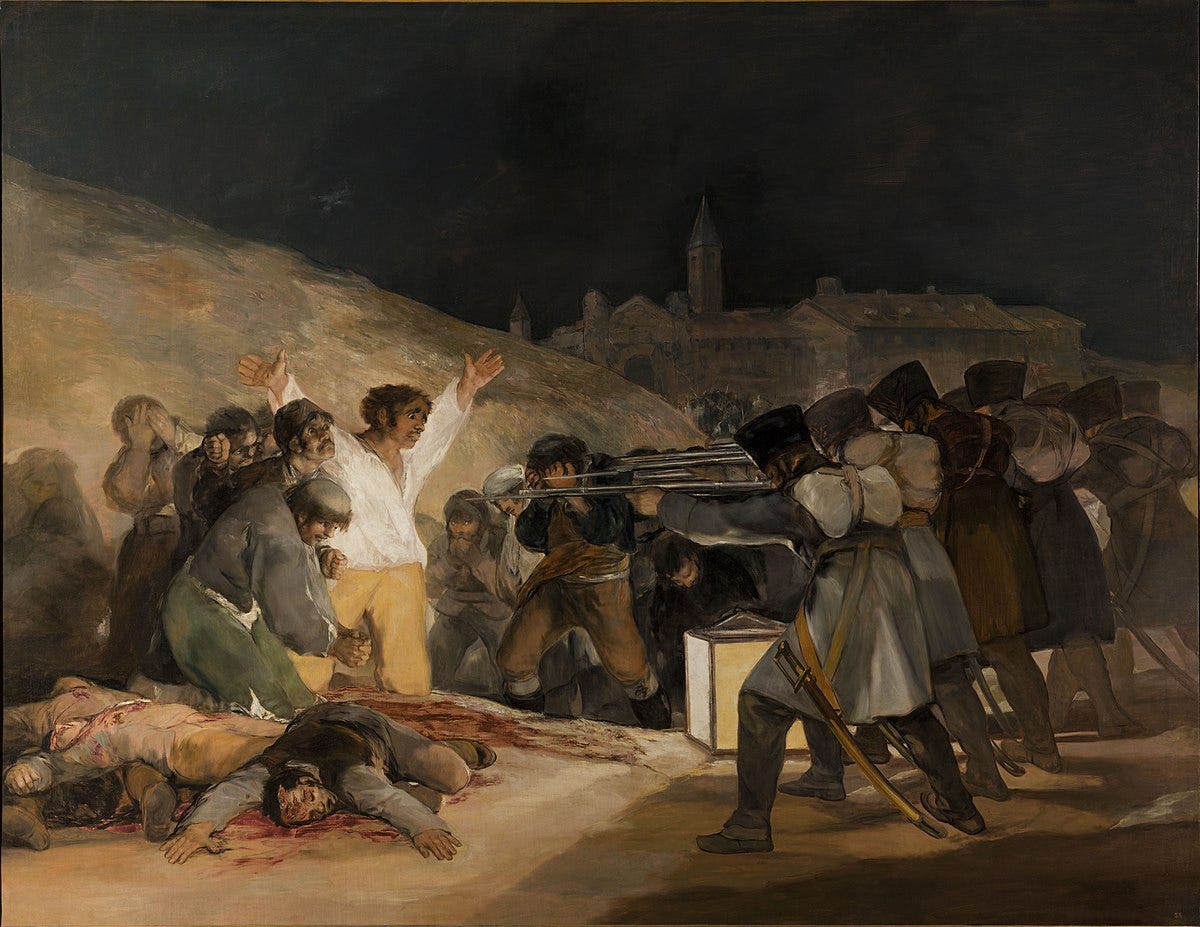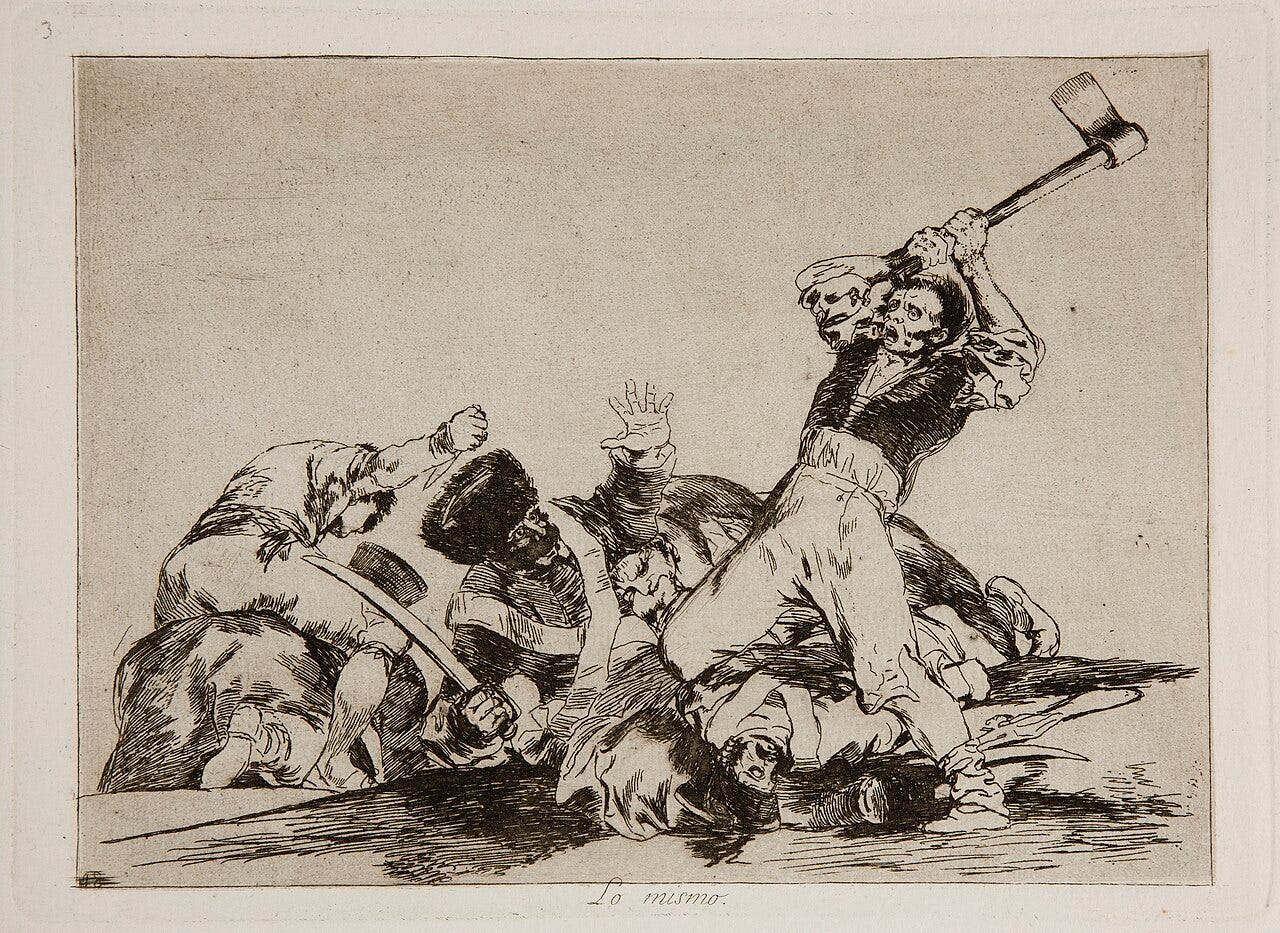In 2016, an Ohio Senate candidate messaged a friend with his thoughts on the presidential candidates vying for the Republican nomination. “I go back and forth between thinking Trump is a cynical asshole like Nixon who wouldn't be that bad (and might even prove useful) or that he's America's Hitler.” That Ohio politician, J.D. Vance, went on to become President Trump’s Vice President pick.
Nine years later, President Trump is proudly and loudly identifying himself with autocracy. On February 19, the White House posted an AI image showing a grinning Trump with a crown on the cover of Time magazine. The manufactured Time headline read, “Long Live the King.” The accompanying text announced the administration’s order halting New York’s recently implemented congestion pricing system for Manhattan. “Manhattan, and all of New York is SAVED. LONG LIVE THE KING! - President Donald J. Trump.” Polls have shown many drivers support the new tolls.

President Trump’s identification with autocratic rule, unconstitutional executive orders, and openly imperial designs on other nation’s territories teaches us once more of the perennial fecundity of the humanities. Philosophy, religion, literature, the arts, and history ground us in a timeless yet ever-evolving humanity. We come to see the world as a creative process that can be impacted by our efforts.
By examining Trump’s autocratic tendencies through a humanistic lens, we can meet the present moment with the compassion, knowledge, and resolve needed to uphold democratic and life-affirming values. In short, the humanities enable us to better understand and resist authoritarianism.
Trump’s Affinity with Autocracy
On February 15, President Trump announced his affinity with autocracy in a post to X. “He who saves his Country does not violate any Law.” The statement is a direct quote attributed to the 19th-century French emperor and conqueror, Napoleon Bonaparte.

In his collection1 of Napoleon’s maxims and pithy statements, the French author Honoré de Balzac quoted Bonaparte as having said, “Celui qui sauve sa patrie ne viole aucune loi.” Translated: “He who saves his homeland does not violate any law.”
Trump’s affirmation of the autocrat’s vision of governance came after his administration usurped Congress's “power of the purse,” issuing blanket freezes of funding allocated by Congress to federal agencies. On February 10, a federal judge ruled that the Trump administration had violated an earlier court order to “immediately restore frozen funding.”
More recently, President Trump signed an executive order dictating that independent regulatory agencies created by Congress will now fall under “presidential supervision and control of the entire executive branch.” The Securities and Exchange Commission (SEC) and the Federal Trade Commission (FTC) are among those regulatory bodies the White House claims supervisory powers over. This means Russell Vought, architect of Project 2025 and now Director of the U.S. Office of Management and Budget, will exercise “oversight over a suite of major agencies—including regulators of Wall Street, campaign finance, telecommunications companies, labor and even the US Postal Service.” In 2023, Vought vowed to “identify pockets of independence [within the Federal government] and seize them.”
Meanwhile, the Trump administration has fired thousands throughout the federal government including more than 1,000 employees with the Department of Veterans Affairs, around 700 probationary employees at the Center for Disease Control and Prevention, 130 employees at the U.S. Cybersecurity and Infrastructure Security Agency, thousands of probationary workers with the Internal Revenue Service, around 1,000 new hires with the National Park Service, 2,000 probationary workers at the Agriculture Department, and 17 inspectors general. The administration has also ordered a halt to the Consumer Financial Protection Bureau’s work.
President Trump has also acted to usurp the Constitution by issuing an executive order ending birthright citizenship which guarantees citizenship to anyone birthed in the U.S.. This right is enshrined in the 14th Amendment of the Constitution. In issuing a temporary restraining order on the executive action, Judge John Coughenour, a Ronald Reagan appointee, described Trump's order as “blatantly unconstitutional.” Shocked at the egregious violation of law, the judge asked where Trump’s lawyers were when the order was signed. “I have been on the bench for over four decades,” said Judge Coughenour. “I can’t remember another case where the question presented was as clear.” Though shocking in the 21st century American context, President Trump’s stronghanded maneuvers resound longstanding authoritarian practices.
President Trump’s former critic and current vice president, J.D. Vance, endorsed President Trump’s subversion of Congress and declared the president cannot be constrained by the judiciary. “Judges aren't allowed to control the executive branch's legitimate power,” he posted to X. In 2021, Vance told a podcaster that Trump should engage in massive firings within the federal government “and when the courts stop you, stand before the country like Andrew Jackson did and say: ‘The chief justice has made his ruling. Now let him enforce it.’” Vance's views are in open rebellion against the principle of judicial review, established in the Supreme Court’s 1803 ruling in the Marbury v. Madison case, in which the judiciary branch provides checks against executive overreach.
Returning to Trump’s social media activity, we learned that the President knows the imperial origin of the quote he posted to X. On February 16, Trump posted the same quote on Truth Social, this time with quotation marks and attribution. The quote stands against the backdrop of Jacques-Louis David’s iconic oil painting, Napoleon Crossing the Alps (1801),2 in which Napoleon the general rides a galloping horse in full military regalia with his right hand held up and index finger pointed onward to victory.
Napoleon Bonaparte: A Model for Trump’s Autocratic Ambitions?
Trump’s choice of Napoleon Bonaparte as inspiration for his vision of governance— or “rule”—invites us to investigate the French emperor’s legacy and its potential relevance to contemporary politics.
Napoleon Bonaparte ascended to power as a pivotal military leader during the French Revolution. In 1804 he announced the end of the revolution and declared himself France's Emperor for Life. One year before Napoleon agreed to sell the Louisiana territory to the U.S.—home to native peoples who were displaced as the U.S. fashioned it into some fifteen states. Over the next 10 years of military dictatorship, Bonaparte conquered Italy, Egypt, Austria, Prussia, Portugal, and Spain. But Bonaparte's conquest was thwarted in Russia where hundreds of thousands of his soldiers died, forcing a retreat. During his reign, Bonaparte suppressed press freedoms, drastically shrinking the number of Parisian newspapers, with those remaining subject to censorship. The emperor was ultimately defeated by united European forces and permanently exiled by 1815.
President Trump may be inspired by not only Bonaparte’s pithy advocacy for autocratic rule but also his endorsement of empire-building. During an early February 2025 meeting with Israeli Prime Minister Benjamin Netanyahu, Trump endorsed removing the Palestinian people from Gaza and said the U.S. would “own” the land. Doing so would allow the U.S. to transform Gaza into the “Riviera of the Middle East,” a destination for international travelers but not a home for the people expelled from their land. Trump has also repeatedly pushed for Canada to become the 51st state of the U.S. despite overwhelming disapproval among Canadians.

Gaza and Canada are not the only foreign lands the Trump administration wishes to take under U.S. control. Trump claimed that the U.S. will acquire the autonomous Danish territory of Greenland. “I don't really know what claim Denmark has to it,” said Trump, “but it would be a very unfriendly act if they didn't allow [the U.S. to purchase Greenland] because it’s for the protection of the free world.” A recent poll found that 85 percent of Greenlanders oppose U.S. ownership. Despite the (dis)interests of Greenland's people, U.S. House Republican Earl Carter of Georgia introduced a bill permitting President Trump to rename the country “Red, White, and Blueland.” Greenland is noted for its natural resources such as rare earth minerals, uranium, and iron.
President Trump also intends to secure Ukrainian natural resources and the Panama Canal. Trump described Ukrainian leader, Volodymyr Zelensky, as a “dictator” following his rejection of an initial U.S. minerals agreement that would have given the U.S. ownership of 50 percent of Ukraine's rare earth minerals in exchange for U.S. foreign aid and investment. Trump has also vowed to “take” control of the Panama Canal from the sovereign nation of Panama, threatening that the U.S. would undertake “powerful” action if the country's leaders did not agree to U.S. demands. Asked by a reporter if he could “assure the world” that he would not “use military or economic coercion” to acquire Greenland or Panamanian territory, Trump's response made clear his willingness to resort to imperial force. “No. I can't assure you. You're talking about Panama and Greenland. No, I can't assure you on either of those two.”
Heroism Painted in Blood, Biophilia vs. Necrophilia
Bonaparte’s romantic image as a French hero was painted in blood. No fewer than 400,000 Frenchmen died for his temporary and short-lived victories. The Spanish painter and printmaker Francisco Goya gave us a more timeless and perspicacious picture of Bonaparte's exploits and legacy.
Inspired by the merciless French occupation of Spain in 1808, Goya’s The Third of May painting depicts a French firing squad massacring hostages taken during a Spanish uprising on May 2nd. A Spanish man in white holds up his outstretched arms, a plea for life and compassion. It is a plea that will surely go unanswered as foreshadowed by the corpses and running blood at the man’s feet.
An equally moving work by Goya, from his set of 82 prints called The Disasters of War, depicts the horrors of war and the violence endured by not only the conquered but also those used by their emperor to conquer.
Eschewing David's romanization of war, Goya depicts Spanish civilians driven to maddening and frenzied defense against French occupation. Standing over a corpse, a man heaves an axe at the body of a French soldier who stretches out an impotent hand of defense. We know how this will end as flesh never withstands steel.
On the other side of the print, we see another Spanish civilian riding the back of a different French soldier, his arm in motion to plunge a knife into the occupier. Goya's work viscerally conveys the war’s flesh penetrating violence, and the high price exacted upon ordinary people—including rank and file soldiers —for the self-aggrandizing achievements of those in power.
As President Trump casually suggests the taking of distant lands, from Gaza and Greenland, and those of nearer neighbors—Canada and the Panama Canal—Goya’s artistry stands as unflinching witness against the inhumanity of empire and, indirectly, propagandistic art. War waged for glory, conquest, and pseudo-heroism—vapid, egoic, and self-aggrandizing—is necrophilia par excellence.
As pioneering social psychologist and philosopher Erich Fromm explained in Anatomy of Human Destruction (1973), necrophilia is the irreverent disdain for life; the prioritization of objects over living beings, and the exaltation of force over creative communion with the world. Necrophilia is a bitter, self-harming embrace of malice and destruction. It is the desperate effort of the creatively and ethically impotent to participate in shaping their world.
Biophilia or “the passionate love of life” stands in opposition to necrophilia. The aim of the “biophilous person,” Fromm explained, is not to possess or control things, but to “be” more within one’s self. Biophilia requires a congruency between ends and means that requires us “to influence by love, reason, and example; not by force, by cutting things apart, by the bureaucratic manner of administering people as if they were things.”
Lovers of life understand that only changes wrought from creative, compassionate communion deserve the title of fully human. While even biophiliacs may recognize instances of just war or self-defensive violence, they also recognize the inherent moral tension in even justifiable uses of force, and they recoil, humanely, from flippant use or vainglorious celebration of coercion.
Empire, Immigration, and Deportation: A Humanistic Perspective
Humanistic inquiry enables us not only to juxtapose necrophilia and biophilia—political propaganda of emperors (Napoleon Crossing the Alps) and the raw terror and dehumanization of war (The Third of May)—but also to critically, contextually, and ethically examine contentious matters of the day including Trump’s mass deportation program. The administration’s policy entails deporting immigrants to military bases including Guantánamo Bay and other countries like El Salvador where human rights groups have found “systematic use of torture and other abuse against prisoners in penal centers.” President Trump’s moral indifference to the plight of undocumented immigrants and willingness to use them for political gain highlights the necrophilic character of his administration and underscores the need for a biophilic, humanistic response.
Whatever their political stance on immigration, the humane and life-loving cannot help but retch at the Trump administration’s active humiliation of ordinary people seeking to make a better life for themselves. In mid-February, the administration posted a video captioned “ASMR: Illegal Alien Deportation Flight,” featuring people being shackled and bordering plans as part of Trump's deportation policy. ASMR is an acronym for “autonomous sensory meridian response” and is meant as a pleasing sensory experience. The essence of the administration’s vision of “ASMR” is captured by the image of “Authoritarian ASMR” or what we might call “necrophiliac ASMR.” There is nothing “pleasing” about seeing a frightened person who has traversed hundreds of miles seeking a better life placed in shackles.
Humanistic study challenges us to interrogate rather than uncritically adopt the claims of power. We are called to examine today’s common sense beliefs about immigration, voting, and what it means to belong. Such questions lead us to discover historical practices that run counter contemporary assumptions. We learn that, for example, unauthorized entry into the U.S. was not criminalized until the 1929 “Undesirable Aliens Act,” 153 years into the nation’s history. Though figures like Trump would have us believe otherwise, the U.S. has a long tradition of allowing noncitizens to participate in elections. Until around 1926, as many as 40 different states not only permitted unauthorized immigration but also extended voting rights to non-citizens.
The history of U.S. immigration and deportation practices reminds us of our nation’s reliance on non-American workers and the injustices many of the people who helped create the wealth of this nation were subjected to. The Undesirable Aliens Act coincided with the start of the Great Depression and led to the U.S. Border Patrol, created in 1924, forcibly rounding up and deporting about 82,000 people of Mexican ancestral origin. The U.S. policy of Mexican “repatriation” resulted in up to 2 million Mexicans leaving the country, with many pushed out due to not only dire economic conditions but also the compounding factor of racist social pressures. Many who were forcibly removed or pressured to leave were U.S. citizens.
The U.S. government had previously enticed Mexican laborers to migrate into the country in the early 1900s to fill labor shortages. Mexican laborers worked on railroads and in the agricultural sector, thus helping to feed the nation and build its infrastructure. Such knowledge invites us to think more deeply about contemporary claims about a supposed bygone era where the U.S. maintained secure borders that prohibited outsiders from entering our nation. It also leads us to ask who deserves the fruits of that labor.
Knowledge of prior mass deportation efforts provokes critical awareness of how easy it is for a nation to dehumanize immigrants. One of our nation’s fiercest efforts to “militarize” the U.S. border and forcefully deport undocumented immigrants occurred during the 1950s’ “Operation Wetback,” the racist moniker given to the initiative by the government. The mass deportation campaign happened after the U.S. worked with the Mexican government to fill the labor gap left in the wake of American men being deployed to fight Nazis during World War II.

Studying the longer patterns of U.S. immigration policy reveals that our nation has often relied upon its human neighbors for sustenance and development. And each time our economic fate has changed, those called upon to help are quickly singled out for blame and often subjected to denigration.
And though the topic of empire may seem, at first, distant from immigration, we would do well to remember that Mexican migrants entering the U.S. have long entered lands that once belonged to their home country. Much of what we today call the United States was acquired through the imperial belligerence of annexing Texas and the subsequent Mexican-American War. That war, which was challenged by the likes of Abraham Lincoln and Henry David Thoreau, yielded such spoils as the states of California, New Mexico, and Arizona, through the February 1848 Treaty of Guadalupe Hidalgo. This is to say nothing of countless subsequent U.S. foreign policy decisions that detrimentally impacted and destabilized countries throughout Latin America, generating mass migration.
The Humanities as a Tool for Resistance
Those who have believed the historical study of empire and American imperialism is mere idle or backward-looking intellectualism are proven wrong on two accounts. On the one hand, they misunderstand history, which is not simply recreational retrospection. It is the study of the characteristics of the human past, including the very best and the very worst and all in between, with an eye for its relevance to our present. We are not so far removed from those we think of as being in our “history.”
Those dismissive of studying history and the wider field of humanities are also proven wrong to think that knowledge of autocracy and American imperialism offers us no insights into the present. Trump's bellicose endorsement of an authoritarian presidency and naked empire-building reveals just how little has changed in the last century of human existence. The unthinking idolization of dominance and lusting for material—“mineral”—possessions, even when it requires force and dehumanization of the other, remains a core human tendency. One that must be resisted in every age.
By embracing the humanities, we cultivate the critical consciousness and compassion needed to resist the allure of Napoleonic ASMR authoritarianism. Through the artistic, ethical, and historical insights of the humanities, we fortify ourselves against necrophilia and nurture a democracy grounded in biophilia and dignity.
Please share and like this post by clicking the heart icon.
Invite Dr. Nall to Speak
Dr. Nall delivers enlivening talks and engaging workshops on the subjects featured in Humanities in Revolt. Those interested in booking a workshop or talk can get in touch through Facebook or by leaving a comment.
Maximes et pensées de Napoléon.
Alternatively titled “Napoleon Crossing the Great Bernard Pass.”











Well put, Jeffrey.
Here are my simple thoughts on the matter. It is eminently true that all Empires end; it looks as if Trump and his bombastic, belligerent, polarizing and erratic ways will be the catalyst for America to not only end its global hegemony, but to also become a nation with limited influence, limited alliances, limited power--isolated and alone. Not something that most Americans will find comforting.
But this is the road that the U.S. is taking, a rocky one. America, under the Trump Administration, is making enemies around the world, including among us Canadians. We always thought the U.S. was a staunch and loyal ally. No longer. His childish taunts and his economic tarriffs of vengeance have told us in no uncertain terms that this is no longer true.
Canada will not only survive; we are uniting as a nation, from coast to coast and will become stronger and more cohesive as a people and nation.
As for the U.S., Pres. Trump seems to have a knack for turning people against him and the nation that he represents. So much so that in a few years, the international community of nations will regard America the same way it now views Israel. A pariah state.
Imagine the chaos it would cause across the country if Barack Obama started referring to himself as a king.😂